The Opening Convocation for Penn’s 2,400 students in the Class of 2023 and 115 transfer students was held on Blanche P. Levy Park and College Hall Green on August 26, 2019. The evening began with the processional, led by Penn’s new Vice President and Secretary of the University Medha Narvekar, who carried the University Mace. Penn’s Chaplain Charles Howard gave the Invocation which invoked “a freedom of mind, freedom of spirit and a freedom of heart that will endure.” Dean of Admissions Eric Furda presented the Class of 2023 to President Amy Gutmann, who welcomed the new students to the Penn community. Provost Wendell Pritchett urged them to be fearless. The Penn Band, Counterparts and the Glee Club provided musical interludes between the speeches.
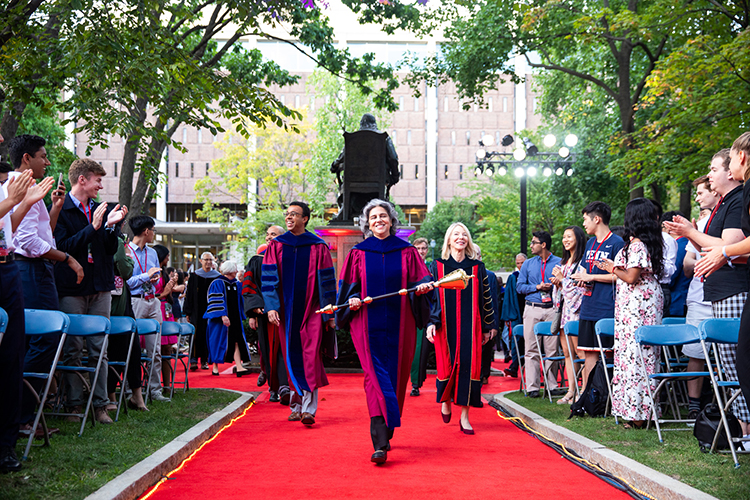
Expanding Your Orbit
President Amy Gutmann
Members of the Class of 2023: You have arrived!
Transfer Students: You made the right call!
You come from all 50 states, Washington, DC, and 79 countries around the globe. The sheer diversity you represent is nearly impossible to capture in words.
But this is Penn, so we will attempt it anyway.
On the count of three, together, I want you to shout out your home state or country. Ready? One, two, three!
I don’t think I heard everyone. Let’s try it one more time. One, two, three! Good!
I welcome you all to the Penn family. I also congratulate you on the journey you made to arrive right here.
For most of you, the journey began in 2001, the year you were born. People say it was the year that changed everything. If that is true, then I say you are the Class that can transform anything.
In coming to Penn, you’ve arrived at the very best place in the world to do exactly that. Here, together, you will have profound opportunities to dig deeply, explore boldly and deploy your creativity to maximum effect.
Consider this the official launch date for the next stage in your journey. Let’s call it 2001: A Penn Odyssey.
And trust me when I tell you: It’s going to be out of this world.
To maximize your Penn odyssey, I challenge you first, foremost and every day to do one thing:
Expand your orbit.
This year is the 50th anniversary of the Apollo 11 mission that put the first person on the Moon. Neil Armstrong stepped out on the lunar landscape and said, “That’s one small step for man, one giant leap for mankind.”
It’s a line we know by heart. Here’s something we can all take to heart: Penn alumni helped put the first person on the Moon. Penn graduates helped run the Kennedy Space Center and engineer the rocket technology that powered the Apollo program.
In my lifetime, the Moon landing was a defining achievement. In your lifetime, it may very well be Mars.
And Penn people will make that possible as well, people such as Elon Musk, the Penn alum whose SpaceX program is transforming how we journey to the stars. Penn faculty are investigating how the human body can better cope with space travel. And Penn undergraduates just like you intern at NASA every year. Our Center for Undergraduate Research and Fellowships—which we call CURF—can connect you with many such opportunities.
But space exploration is just one possibility. Expanding your orbit at Penn involves any field and every endeavor.
For instance, who here is a movie fan? I’m a huge movie buff myself, and I wonder: Who went to the theater this summer to see Avengers: Endgame?
I guessed you might—after all, it is the highest grossing film of all time. What you might not know is that both Avengers: Infinity War and Endgame were co-directed by none other than a Penn grad.
That’s right: Anthony Russo graduated from the College in 1992 with a degree in English.
It just goes to show you: To do something out of this world at Penn, you don’t have to major in physics.
Expanding your orbit goes well beyond your major. It means growing your understanding of service, citizenship and—most importantly—your wellbeing.
To help you do this, I encourage you to pursue an exciting new certificate program that we’ll launch this spring called Paideia. It means educating the whole person. The idea comes from the ancient past, but Penn’s Paideia is updated and innovated for modern times—like a form of time travel. Think of it as Benjamin Franklin meets Back to the Future.
In everything you undertake at Penn, from coursework to citizenship, the secret to success is to expand your orbit.
And since there’s no time like the present, I propose we start right now.
Please stand up. Go ahead, stretch your legs.
The very first step in expanding your orbit is reaching out to somebody new. So look around and choose somebody you haven’t met before. When I give the word, go say hi. Shake hands and share a quick fact about yourself.
Ok everyone, go for it! Come on now, no exceptions. Not even me! OK, great! Please have a seat. I see plenty of smiles, so I declare your first launch a success!
Today, you officially join a Penn line of explorers stretching back nearly three centuries.
Benjamin Franklin; eight signers of the Declaration of Independence; nine signers of the US Constitution; and nearly 320,000 Penn alumni currently living around the world: Past and present, it’s the most passionately engaged network of leaders and innovators anywhere.
They have all expanded their orbits through Penn. The results are often transformational. This I know not just as Penn’s president but also as a fellow explorer.
Not long ago, I asked Jonathan Moreno, who is one of our Penn Integrates Knowledge University Professors, to partner with me on a new book about bioethics. The book is intended to help all of us better navigate the hot-button medical issues of our time. It’s called Everybody Wants to Go to Heaven But Nobody Wants to Die.
Now, Professor Moreno and I had worked together on President Obama’s bioethics commission, but we have diverse backgrounds. I’m a political scientist, and he’s an expert in the history of medicine and health policy. I thought that by expanding our orbits together, the book would be even better than if we had flown solo.
Luckily for me, Professor Moreno agreed. Writing a book is super exciting, but it’s also hard work and long hours. I won’t go into detail about our many months of collaboration, except to offer you this: Insomnia Cookies makes home deliveries til 3 a.m. every night! This may be the tastiest piece of information in your entire orientation. You heard it here first!
The outcome of our teamwork is far more than a book. It is a case study for what we at Penn do every day, and it’s what makes Penn such a powerful force in all our lives and for new knowledge and good in the world.
Together, we forge deep and long-lasting relationships; we reach across diverse perspectives and disciplines; and we build community.
As you embark on your Penn odyssey, you join a remarkable University that’s committed to helping each and every one of you work together, discover together, and have fun together.
Most of all, every day, in countless ways, we will expand our orbits—together.
It’s going to be a blast!
Welcome to Penn!
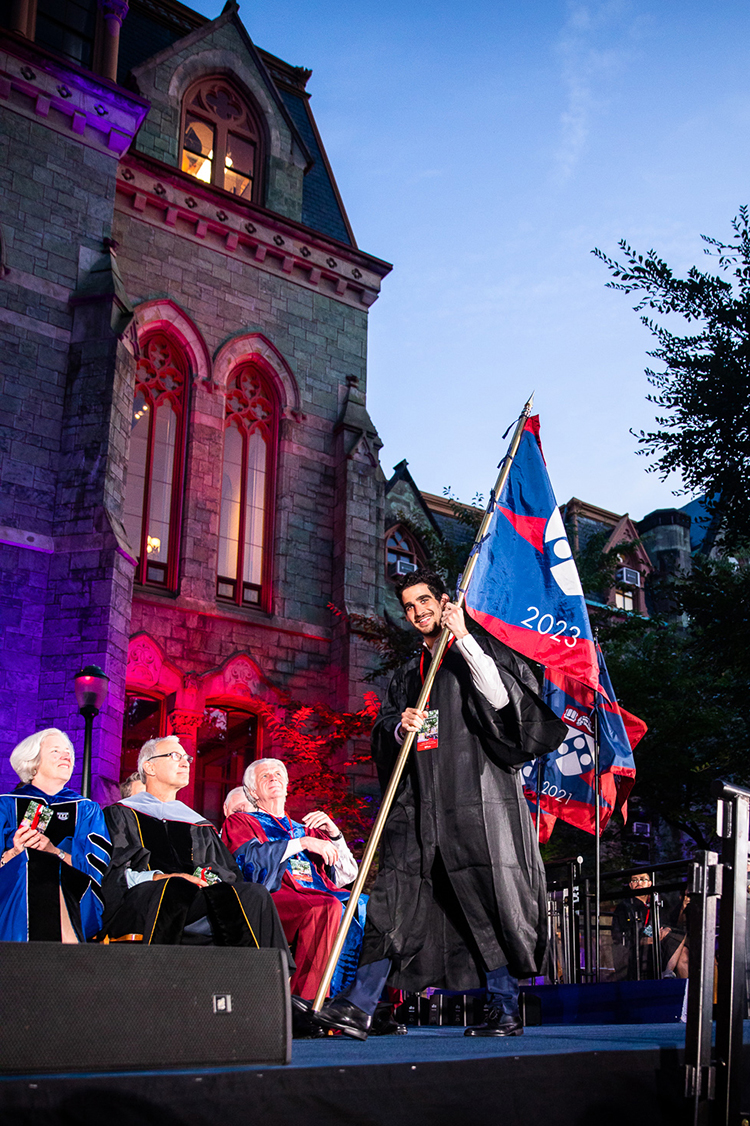
Be Fearless in Shaping the Future
Provost Wendell Pritchett
As Provost—Penn’s Chief Academic Officer—it’s my great pleasure to welcome you this evening.
Convocation marks the first time you’re assembled together, as a class; it’s a Penn tradition that dates back, at least formally, to 1910. Penn has changed, a lot, since then. The Class of 1914 didn’t look much like your class; they didn’t have the same diverse backgrounds; they weren’t from across the country and around the world; and they didn’t have the diversity of goals that you do.
But—and this is just a guess—sitting here that evening, their thoughts were probably not that much different than yours: I got this! Or: maybe I don’t got this. They were excited and uncertain about the future. Uncertainty, excitement—even fear—are natural emotions when confronting the unknown. Maybe you felt them when you wobbled unsteadily on your first bike ride; or when you peered over the steering wheel that first time; or when you first faced the SAT.
Penn is a new place, and college is a new stage of life for you. All those emotions are in play tonight. Yes, even fear. But my message to you this evening is to be fearless: in taking advantage of all the opportunities open to you here; in your desire for change in yourself; and in your aspirations for improving the world.
At the end of his 1961 speech to the students at Michigan’s Kalamazoo College, the writer James Baldwin told them: “The world is before you and you need not take it or leave it as it was when you came in.” In an earlier time of turmoil for this country, he was conveying to the students that they had a choice: They could avoid the challenges facing the country, or they could engage fully and change themselves and the world around them.
You now have the ability—the obligation, really—to shape our future, because you will lead us. (But, really, no pressure.) Your years at Penn will give you ample opportunity to learn about things as they are. I encourage you to be fearless in imagining how they could be.
What does that mean, practically speaking? Well for one thing, it means speaking. Reaching out. Engaging with those around you. Getting involved: your connection may be the spark that changes a life. Make your opinions heard, in the classroom, on our campus and in the community. Penn has no fence that surrounds us. There are no high walls, bars or barriers to cross. The West Philadelphia community is our community. Locust Walk, behind you, is both the heart of our campus and a public street. As such, it’s open to everyone. On it, you will hear opinions different from yours: some from fellow students, and some from non-students. Free speech is a cornerstone of this University and our democracy, and we take it very seriously.
Keep in mind, however, that speaking out does not mean drowning out. Penn is a diverse place, in every sense of that term. So be fearless in your listening, too—and demand that of others. You will become a better debater, and a more well-rounded person. The Socratic Method teaches us to question our suppositions, to hold them up for inspection and criticism. Be fearless in your criticism, but be open to change and willing to be convinced.
Reach and branch out. Take classes in subjects you know nothing about; join groups composed of people who are nothing like you. I think you’ll be surprised on both counts. Choose the more difficult thing because it’s more difficult.
You’ll have lots of choices here. Some of them will be difficult. The most rewarding ones usually are. Be fearless in your choices, and also know that you’ll have lots of opportunities to course correct. For example, selecting a major can feel like a momentous and difficult choice. But it will not define your future: the vast majority of US college graduates work in jobs that aren’t strictly related to their degrees. Think about your choices, yes, but don’t stress about them.
And finally, remember that being bold, that taking chances, inevitably brings setbacks. This is how we learn, right? Your classmates and friends, your professors—everyone sitting up here tonight and the thousands of Penn staffers not here—want you to succeed. We are your fearless champions. This community is here for you, so please reach out if and when you need help.
Earlier, I talked about getting involved in our community. Let me close with one last thought. You may know that Penn was the nation’s first university, the first collection of schools offering specific areas of study. What you may not know is that from its very founding and to this day, a critical aspect of that education has been participation. Three hundred years ago, Franklin envisioned a place that would encourage civic responsibility and government accountability in a fledging nation. That, in effect, an educated and engaged citizenry was the bulwark against tyranny.
In these challenging times—and they are challenging—your fearless participation in our democracy is more important than ever. My hope for you is that your years here will be filled with pure excitement—with joy!—about this unparalleled opportunity for education and participation.
Life is full of new challenges and uncertainty. Maybe you fell off that bike; or took the SAT just a few times; hopefully you didn’t crash the car like I did. And you made it here, tonight. You made it! Members of the Class of 2023: Welcome to Penn, and here’s my fearless prediction: you definitely, definitely got this!
 Katherine L. Nathanson, deputy director of the Abramson Cancer Center at the University of Pennsylvania and the Pearl Basser Professor for BRCA-Related Research in Penn’s Perelman School of Medicine, has been awarded a $3 million research grant from the Gray Foundation. This new Team Science Grant, “Determinants of immune activity and molecular features in BRCA1/2 mutation carriers,” will support Dr. Nathanson and her team as they study new approaches to understanding immune function both in healthy BRCA mutation carriers and BRCA-related cancers. It is one of seven teams to receive a Team Science Grant nationally, with The Gray Foundation awarding $25 million total.
Katherine L. Nathanson, deputy director of the Abramson Cancer Center at the University of Pennsylvania and the Pearl Basser Professor for BRCA-Related Research in Penn’s Perelman School of Medicine, has been awarded a $3 million research grant from the Gray Foundation. This new Team Science Grant, “Determinants of immune activity and molecular features in BRCA1/2 mutation carriers,” will support Dr. Nathanson and her team as they study new approaches to understanding immune function both in healthy BRCA mutation carriers and BRCA-related cancers. It is one of seven teams to receive a Team Science Grant nationally, with The Gray Foundation awarding $25 million total.
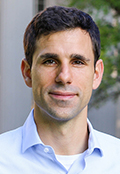 César de la Fuente has joined the Perelman School of Medicine at the University of Pennsylvania as a Presidential Assistant Professor in the departments of psychiatry and microbiology, in addition to the department of bioengineering at Penn. His research combines techniques from protein design, engineering, computational biology and microbiology to harness an array of biological systems to fight infectious diseases and mental illness. Dr. de la Fuente’s current work investigates merging concepts from synthetic biology and computational biology to create artificial antibiotics.
César de la Fuente has joined the Perelman School of Medicine at the University of Pennsylvania as a Presidential Assistant Professor in the departments of psychiatry and microbiology, in addition to the department of bioengineering at Penn. His research combines techniques from protein design, engineering, computational biology and microbiology to harness an array of biological systems to fight infectious diseases and mental illness. Dr. de la Fuente’s current work investigates merging concepts from synthetic biology and computational biology to create artificial antibiotics.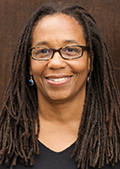 Heather Andrea Williams, professor of Africana studies, has been named Geraldine R. Segal Professor in American Social Thought. An internationally recognized historian, Dr. Williams was a Presidential Professor from 2014 until this year. Her research focuses on slavery and African American history in the 18th- and 19th-century American South. Her book Self-Taught: African American Education in Slavery and Freedom has won many prizes and awards, including the Lillian Smith Book Award of the Southern Regional Council and the American Educational Research Association New Scholar’s Book Award.
Heather Andrea Williams, professor of Africana studies, has been named Geraldine R. Segal Professor in American Social Thought. An internationally recognized historian, Dr. Williams was a Presidential Professor from 2014 until this year. Her research focuses on slavery and African American history in the 18th- and 19th-century American South. Her book Self-Taught: African American Education in Slavery and Freedom has won many prizes and awards, including the Lillian Smith Book Award of the Southern Regional Council and the American Educational Research Association New Scholar’s Book Award.

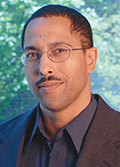


 Chronic wasting disease continues to spread to new parts of Pennsylvania, infecting and killing deer and threatening hunting tradition. West Nile virus has left Pennsylvania’s state bird, the ruffed grouse, with an uncertain future. At no time in history has disease posed more problems for wildlife and its conservation. And that’s why a new partnership between the Pennsylvania Game Commission and the University of Pennsylvania’s School of Veterinary Medicine (Penn Vet) has formed to address those problems head-on.
Chronic wasting disease continues to spread to new parts of Pennsylvania, infecting and killing deer and threatening hunting tradition. West Nile virus has left Pennsylvania’s state bird, the ruffed grouse, with an uncertain future. At no time in history has disease posed more problems for wildlife and its conservation. And that’s why a new partnership between the Pennsylvania Game Commission and the University of Pennsylvania’s School of Veterinary Medicine (Penn Vet) has formed to address those problems head-on.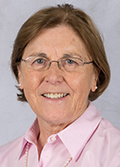 Margaret Ruth (“Ruth”) McCorkle, professor emerita of nursing at the University of Pennsylvania’s School of Nursing and a pioneer in cancer nursing, education and cancer-control research, died in her Connecticut home on August 17. She was 79.
Margaret Ruth (“Ruth”) McCorkle, professor emerita of nursing at the University of Pennsylvania’s School of Nursing and a pioneer in cancer nursing, education and cancer-control research, died in her Connecticut home on August 17. She was 79.

